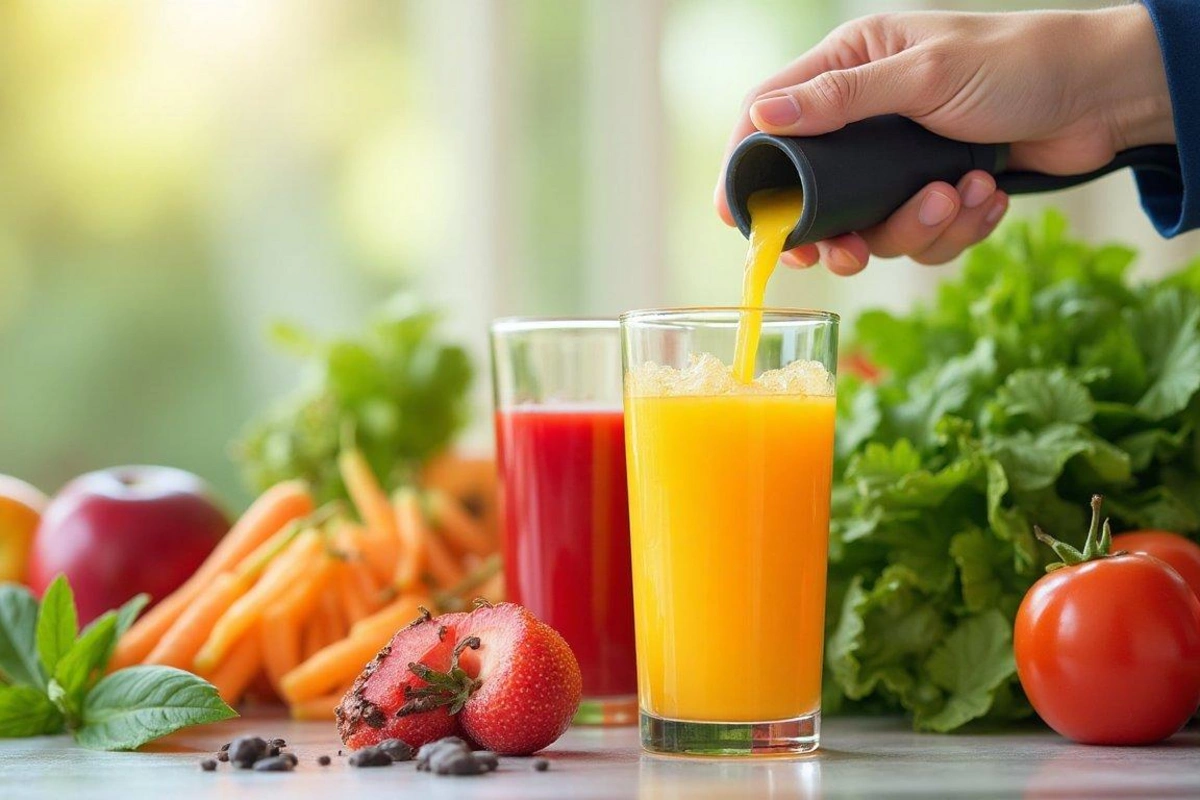Which juices lower blood pressure, and which ones raise it?

Juices are a popular drink that many people consume daily. But how often can you drink them without harming your health, especially your blood pressure? Let's consider what's important to take into account when choosing juice and its effect on blood pressure.
-
Sugar and calorie content
Natural juices, even without added sugar, can contain significant amounts of natural sugars (such as fructose). Excessive consumption of these sugars can lead to weight gain, which, in turn, increases the risk of hypertension. Juices with added sugar (such as many commercial fruit juices) can further increase the caloric content of the diet, which is not beneficial for blood pressure. -
Juices high in potassium
Some juices, such as orange juice and pomegranate juice, contain a lot of potassium. Potassium helps lower blood pressure as it promotes blood vessel relaxation. Including these juices in your diet can be beneficial, but it's important to remember that they should be consumed in moderate amounts. -
Moderation is an important factor
It's best to drink juices in moderate amounts. Optimally - no more than one glass of juice per day. This will help avoid excessive consumption of sugar and calories, as well as provide the body with vitamins without putting extra strain on the system. -
Impact on people with hypertension
For people with already high blood pressure, it's worth limiting the consumption of juice with added sugar and carefully monitoring the caloric content of the diet. Juices with low sugar content, such as tomato or vegetable juices, which help maintain normal blood pressure, will be beneficial. -
How to choose juice?
When choosing juice, it's important to pay attention to the composition. It's better to choose 100% natural juices without added sugars and preservatives. You can also make juices yourself to control the amount of sugar and other additives.
Thus, juices can be beneficial for health if consumed in moderation and if quality products are chosen. But it's important to remember that excessive consumption can increase the caloric content of the diet and affect blood pressure.
Similar News
Astronomers reported a powerful explosion on the side of the Sun hidden from Earth
An extremely powerful double explosion was recorded on the far side of the Sun last night. This was reported by the Laboratory of Solar Astronomy at the Space R...




 Azərbaycanca
Azərbaycanca  По-русски
По-русски  English
English 





